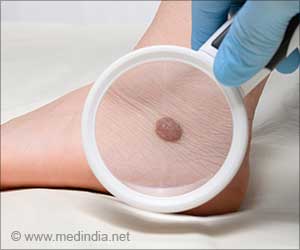Patients diagnosed with colorectal cancer are found unaware about the interval and requirement of surveillance colonoscopy

‘Lack of knowledge about colonoscopy in high-risk colorectal cancer patients is found detrimental for the patients.’





Around 28.6 percent were unaware about the need for a repeat colonoscopy and a proper interval. Among these, 16.6 percent were unaware of the proper three-year interval to receive a follow-up surveillance colonoscopy and 12 percent were not aware that they needed a follow-up surveillance colonoscopy.Fecal immune testing, multi-targeted stool DNA testing, flexible sigmoidoscopy and colonoscopy are a few screening modalities for colorectal cancer.
"Our data demonstrate a lack of knowledge of patients with biopsy proven advanced colorectal polyps about their need for repeat colonoscopy as well as the proper surveillance interval, for patients with biopsy proven advanced colorectal polyps, the interval for colonoscopy is about three years. Our data raise a challenge for us to rely on more objective data than self-reports. Clinicians should have the ability and willingness to share their objective findings with all clinical colleagues involved in the care of the patient. These efforts should also include younger patients such as Chadwick Boseman who recently died of colon cancer at age 43.", said Lawrence Fiedler, M.D., co-author, a gastroenterologist and an affiliate associate professor in FAU's Schmidt College of Medicine.
According to the American Cancer Society, from 2007 to 2016, incidence rates of colorectal cancer in people 55 years or older dropped by 3.6 percent each year, but increased by 2 percent each year in those younger than 55. Colorectal cancer is said to be increasing in youth.
"Data from our study pose clinical and public health challenges to reduce the rates of recurrences of colorectal polyps as well as subsequent risks of colorectal cancer in these high-risk patients.More than 90 percent of patients diagnosed with colorectal cancer are 50 years or older. The major risk factors for colorectal cancer are similar to those for heart attacks and stroke and include overweight and obesity, type-2 diabetes, as well as physical inactivity.", said Charles H. Hennekens, M.D., Dr.P.H., senior author, first Sir Richard Doll Professor and senior academic advisor in FAU's Schmidt College of Medicine.
Advertisement














